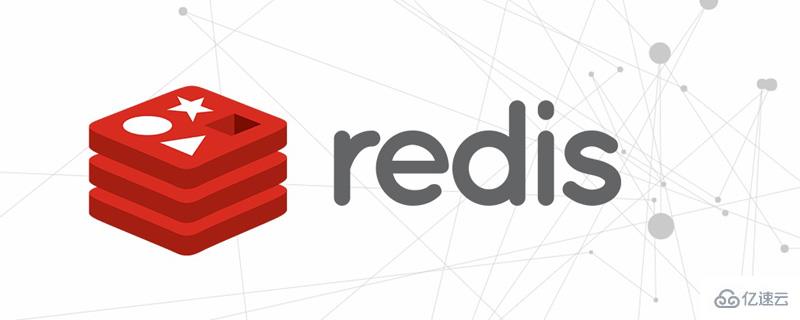What is session? I didn’t understand it at first. Non-professional dictionaries translate it as meeting and session period. Let’s make an inappropriate metaphor
(Although inappropriate, the meaning is the same), session is the relationship between you and the website. Session plays a very important role in WEB technology. Since the web page is a stateless connection program, you cannot know the user's browsing status. Therefore we must
The user's relevant information is recorded through the session so that the user can confirm when providing a request to the web server again in this capacity, for example
For example, we often require users to log in on some websites, but how do we know that the user has logged in? If there is no session, the login information cannot be retained, so why not ask the user to provide the username on every page? name and password.
Of course, session is not only used for user identity authentication, but may also be used for other aspects, which we will mention later. Session is explained in Chinese as session period. A session begins when the user enters the URL of a site and ends when he leaves the site. Session first appeared in the dynamic scripting language ActiveServerPages. Its function is so powerful that it cannot be explained clearly in one sentence.
When PHP was still in version 3.0, sessions were its eternal pain. Although PHP has the advantages of fast execution speed, flexible use, and powerful functions, many website developers have abandoned PHP because of session problems, at least my boss thinks so. At that time, there were many PHP free function libraries that provided solutions for implementing sessions on PHP3, but they all felt unauthentic. It's like the mobile phone you bought for thousands of dollars comes with a rough straw bag. Although the functions are the same, it always feels awkward. The emergence of php4 has given PHP a chance to make a comeback on the session issue. Although its session implementation is not ideal (mainly due to efficiency issues), it is implemented by itself after all, and it can be actually used. So what do we use session for? You've been talking for a long time. If I don't use it, wouldn't you be suspected of selling paper? OK, let's see what the session is used for: Anyone who has worked on a website has this experience. The variables on one page (in this chapter all refer to server-side variables, the same below) cannot be used on the next page. Although there are some ways to achieve this, such as using forms, urlstrings, etc., some are inconvenient for users. Even if the form is automatically submitted, the delay is enough to suffocate under today's network conditions, and this Both methods significantly increase the burden on programmers. If you are developing a large project, these additional burdens cannot be ignored. With session, it is easier to handle. Variables registered in session can be used as global variables. What, global variables? Great. In this way, you know what it is used for: the most important ones are used for user identity authentication, program status recording, and parameter transfer between pages.
After talking about its benefits for so long, you are already tempted, but don’t be happy yet. It also has shortcomings: it is a variable saved in a file (of course it is not efficient, although other methods can be used, but it is very troublesome) , the object cannot be saved. In contrast, the session in asp can save object variables and use memory variables to save session variables. But why do we still use PHP? Haha, why, you can read this chapter from the beginning of this book, I guess you should understand it. If you still don’t understand, Faint, just start from the beginning again, I guarantee that you will become PHP expert ^_^.
How is session implemented? Haha, you must think it is very profound, let me tell you its secret. If you only save variables, many readers will understand that this is very simple, but as we said before, the http protocol is a stateless connection. How do you know who the variable belongs to and who the variable belongs to? ?Achieved using cookies in session implementation. The cookie exists on the client, that is, the user's machine. It stores the user's session ID, which is the session number. When the user's browser requests the server, the session ID is also sent to the server, so that the server can identify who you are. This way the variable can be identified. In this way, it is not difficult for us to understand why the session sometimes fails. If you don't believe it, you can try: There is the "Internet Options" menu on the "Tools" menu of IE. After opening it, select "Security"->"Custom Level" and change the "Allow use of each conversation" in the security settings. "Cookies" is set to disabled, and then see if the session can be used. Now you understand! However, PHP4 can automatically check the cookie status on the linux/unix platform. When the cookies are not available, the session ID will be automatically attached to the url and passed. This is its only advantage over asp in terms of sessions.
 SpringBoot Session怎么设置会话超时May 15, 2023 pm 02:37 PM
SpringBoot Session怎么设置会话超时May 15, 2023 pm 02:37 PM问题发现springboot项目生产session-out超时问题,描述下问题:在测试环境通过改动application.yaml配置session-out,经过设置不同时间验证session-out配置生效,于是就直接设置了过期时间为8小时发布到了生产环境。然而中午接到客户反应项目过期时间设置较短,半小时不操作就会话过期需要反复登陆。解决处理开发环境:springboot项目内置Tomcat,所以项目中application.yaml配置session-out是生效的。生产环境:生产环境发布是
 php session刷新后没有了怎么办Jan 18, 2023 pm 01:39 PM
php session刷新后没有了怎么办Jan 18, 2023 pm 01:39 PMphp session刷新后没有了的解决办法:1、通过“session_start();”开启session;2、把所有的公共配置写在一个php文件内;3、变量名不能和数组下标相同;4、在phpinfo里面查看session数据的存储路径,并查看该文件目录下的sessio是否保存成功即可。
 session php默认失效时间是多少Nov 01, 2022 am 09:14 AM
session php默认失效时间是多少Nov 01, 2022 am 09:14 AMsession php默认失效时间是1440秒,也就是24分钟,表示客户端超过24分钟没有刷新,当前session就会失效;如果用户关闭了浏览器,会话就会结束,Session就不存在了。
 Springboot2 session设置超时时间无效怎么解决May 22, 2023 pm 01:49 PM
Springboot2 session设置超时时间无效怎么解决May 22, 2023 pm 01:49 PM问题:今天项目中遇到了一个设置时间超时的问题,按SpringBoot2的application.properties更改一直不生效。解决方案:server.*属性用于控制SpringBoot使用的嵌入式容器。SpringBoot将使用ServletWebServerFactory实例之一创建servlet容器的实例。这些类使用server.*属性来配置受控的servlet容器(tomcat,jetty等)。当应用程序作为war文件部署到Tomcat实例时,server.*属性不适用。它们不适用,
 Redis的共享session应用如何实现短信登录Jun 03, 2023 pm 03:11 PM
Redis的共享session应用如何实现短信登录Jun 03, 2023 pm 03:11 PM1.基于session实现短信登录1.1短信登录流程图1.2实现发送短信验证码前端请求说明:说明请求方式POST请求路径/user/code请求参数phone(电话号码)返回值无后端接口实现:@Slf4j@ServicepublicclassUserServiceImplextendsServiceImplimplementsIUserService{@OverridepublicResultsendCode(Stringphone,HttpSessionsession){//1.校验手机号if
 JavaScript和PHP的cookie之间有哪些区别?Sep 02, 2023 pm 12:29 PM
JavaScript和PHP的cookie之间有哪些区别?Sep 02, 2023 pm 12:29 PMJavaScriptCookie使用JavaScriptcookie是记住和跟踪偏好、购买、佣金和其他信息的最有效方法。更好的访问者体验或网站统计所需的信息。PHPCookieCookie是存储在客户端计算机上的文本文件并保留它们用于跟踪目的。PHP透明地支持HTTPcookie。JavaScriptcookie如何工作?您的服务器将一些数据发送到访问者的浏览器cookie的形式。浏览器可以接受cookie。如果存在,它将作为纯文本记录存储在访问者的硬盘上。现在,当访问者到达站点上的另一个页面时
 PHP如何在多个文件中正确地读取和写入Session数据Mar 23, 2023 am 11:12 AM
PHP如何在多个文件中正确地读取和写入Session数据Mar 23, 2023 am 11:12 AM当您在使用PHP会话(Session)时,有时会发现Session在一个文件中可以正常读取,但在另一个文件中却无法读取。这可能会让您感到困惑,因为会话数据应该可以在整个应用程序中共享。本文将解释如何在多个文件中正确地读取和写入PHP会话数据。
 PHP如何处理微信小程序中的session问题Jun 02, 2023 pm 03:40 PM
PHP如何处理微信小程序中的session问题Jun 02, 2023 pm 03:40 PM近年来,微信小程序风靡全球,已经成为了许多企业和个人开发者的首选平台。在小程序的开发中,我们经常会遇到session问题,也就是如何在小程序中保存用户登录状态。这个问题对于网站开发者来说并不陌生,但在小程序中却有些不同。本文将介绍如何使用PHP解决微信小程序中的session问题。一、小程序登录过程概述小程序的登录流程与网站的登录流程类似,分为以下几个步骤:


Hot AI Tools

Undresser.AI Undress
AI-powered app for creating realistic nude photos

AI Clothes Remover
Online AI tool for removing clothes from photos.

Undress AI Tool
Undress images for free

Clothoff.io
AI clothes remover

AI Hentai Generator
Generate AI Hentai for free.

Hot Article

Hot Tools

Safe Exam Browser
Safe Exam Browser is a secure browser environment for taking online exams securely. This software turns any computer into a secure workstation. It controls access to any utility and prevents students from using unauthorized resources.

PhpStorm Mac version
The latest (2018.2.1) professional PHP integrated development tool

SublimeText3 Chinese version
Chinese version, very easy to use

MinGW - Minimalist GNU for Windows
This project is in the process of being migrated to osdn.net/projects/mingw, you can continue to follow us there. MinGW: A native Windows port of the GNU Compiler Collection (GCC), freely distributable import libraries and header files for building native Windows applications; includes extensions to the MSVC runtime to support C99 functionality. All MinGW software can run on 64-bit Windows platforms.

Dreamweaver CS6
Visual web development tools






